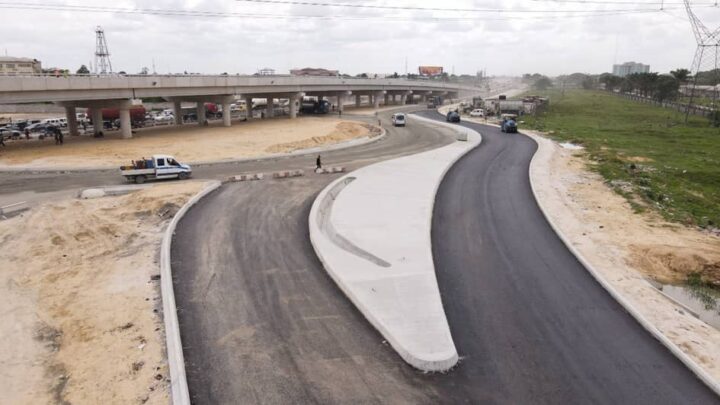J’Berger Engineering Limited has given assurance that the Warri–Effurun flyover project will be delivered on schedule, underlining its dedication to quality, safety, and community impact as the region anticipates enhanced mobility and economic activation.
The company, contracted to execute the dual carriageway overpass linking Effurun to Warri in Delta State, African Petrochemical & Refining Company (APRC) host communities and suburban settlements, emphasized that the project remains on course despite occasional logistical challenges and environmental disruptions.

Representatives of J’Berger, led by the Site Manager and Project Engineer, spoke at a media briefing held at the project site. They reported that preliminary works—including land clearing, axis realignment, drainage installation, and piling—have been completed. Currently, the focus is on constructing the reinforced concrete piers, assembling bridge deck formworks, and laying asphalt on the adjoining elevated ramps. The company confirmed that the flyover is about 60 percent complete, with piers fully cast and the deck uppers expected to be finalized within the next two months.
J’Berger insisted that, barring extreme weather conditions, crews are poised to complete structural works—comprising deck slab casting, expansion joint installation, and parapet wall casting—by the targeted deadline. Sub-base and asphalt surfacing on the side ramps should be finished before the main deck becomes operational. In parallel, the firm has launched utility relocation projects—working with power distribution and telecommunication agencies—to ensure uninterrupted service during and after the flyover’s deployment.
In a statement, the company’s Project Director reaffirmed that adherence to contractual schedules remains non-negotiable. He remarked: “We are fully committed to delivering a safe, stable, and durable flyover that not only alleviates traffic congestion but also supports social and economic connectivity in Warri and Effurun.” He added that all stages of the project are being executed in accordance with quality assurance procedures and safely standards set by both Delta State’s Ministry of Works and the Federal Ministry of Works, under whose jurisdiction the flyover falls.
J’Berger’s assurance comes amid growing public interest and pressure for improved urban transportation infrastructure in the Warri–Effurun corridor. The route, historically plagued by gridlock, especially during peak refinery and seaport shift changes, is considered a major bottleneck. Residents, commuters, business owners, and industrial stakeholders have all advocated for a flyover solution to ease the daily commute, reduce travel time, and enhance economic opportunities.
Local transport unions confirmed a marked improvement in traffic flow since construction began, crediting detour roads and strategically managed work zones for the temporary relief. However, they also cautioned about potential disruptions when key lifts occur and recommended defined periods of night-time closures to avoid chaos during deck placement.
Community leaders in Effurun and Warri offered praise for the project, noting the quality of work and effective community relations programmes being carried out. J’Berger staff have reportedly organised sensitization efforts—including health checks, environmental clean-ups, and employment opportunities—enhancing local support for the flyover. According to the chairman of the Effurun Community Development Association, “We’re impressed that the company engages with our youths and keeps roads clean around the construction area.”
Environmental advocates have also commended the mitigation measures, which include replanting displaced vegetation, installing erosion control nets, and introducing stormwater soak-away trenches to prevent flooding. The State Ministry of Environment confirmed their site visit, stating that J’Berger’s compliance with environmental safeguards is “commendable” and “in line with best practices.”
From an engineering perspective, the project is significant. The flyover comprises seven continuous spans, each 22 meters long, supported by hollow box-girder piers designed to resist seismic and heavy-load stresses. The structure also integrates seismic expansion joints and high-strength asphalt overlays. With its advanced design, the flyover is projected to handle 10,000 to 12,000 vehicles per hour, effectively easing congestion and enabling faster cargo movement from the seaport and refinery.
Significantly, the contractor emphasized the local sourcing of materials—such as coarse aggregates, sand, steel, and asphalt—supporting regional supply chains and reducing project cost. This local procurement strategy has created around 450 direct jobs and more than 700 indirect roles in logistic support, catering, and equipment leasing, boosting the local economy.
J’Berger is working within a broader State government agenda, which includes planned widening of adjacent roads, pedestrian sidewalks, bike lanes, and street lighting upgrades. When the flyover opens, the entire corridor is expected to experience smoother vehicular flow, fewer accidents, shorter travel times, and reduced fuel consumption—benefits that will ripple into commercial hubs, schools, health facilities, and logistical sites.
A Senior Engineer from Delta State’s Ministry of Works said, “We have confidence in J’Berger’s professionalism and capacity. Their engagement with international engineering standards and local institutional frameworks offers reassurance that the project will be delivered on time, safely, and to specification.”
Despite the optimism, J’Berger acknowledged that unforeseen factors such as supply chain delays—especially for steel and bitumen—could pose risks. Weather-related interruptions, notably heavy rainfall and occasional floods during the rainy season, may lead to temporary reductions in manpower and adjustments in sequencing. To mitigate these risks, the contractor maintains a material buffer stock and deploys modular construction shifts to accelerate critical path activities.
Looking forward, the flyover is expected to be officially commissioned within eleven months, with traffic diversions fully reversed upon opening. Once operational, additional infrastructure—like pavements, road markings, and emergency breakdown lanes—will be completed incrementally.
With the timely delivery of the Warri–Effurun flyover, Delta State stands to gain a modern and strategic transport artery that could inspire further investment, elevate mobility standards, and enhance regional integration. J’Berger’s public commitment to the schedule not only demonstrates engineering confidence but also reflects a deeper promise: delivering tangible infrastructure that resonates with community needs and economic imperatives.
Support InfoStride News' Credible Journalism: Only credible journalism can guarantee a fair, accountable and transparent society, including democracy and government. It involves a lot of efforts and money. We need your support. Click here to Donate
